In the North’s Leave-Voting Seats, Disillusionment Is Labour’s Biggest Enemy
by Craig Gent
10 December 2019
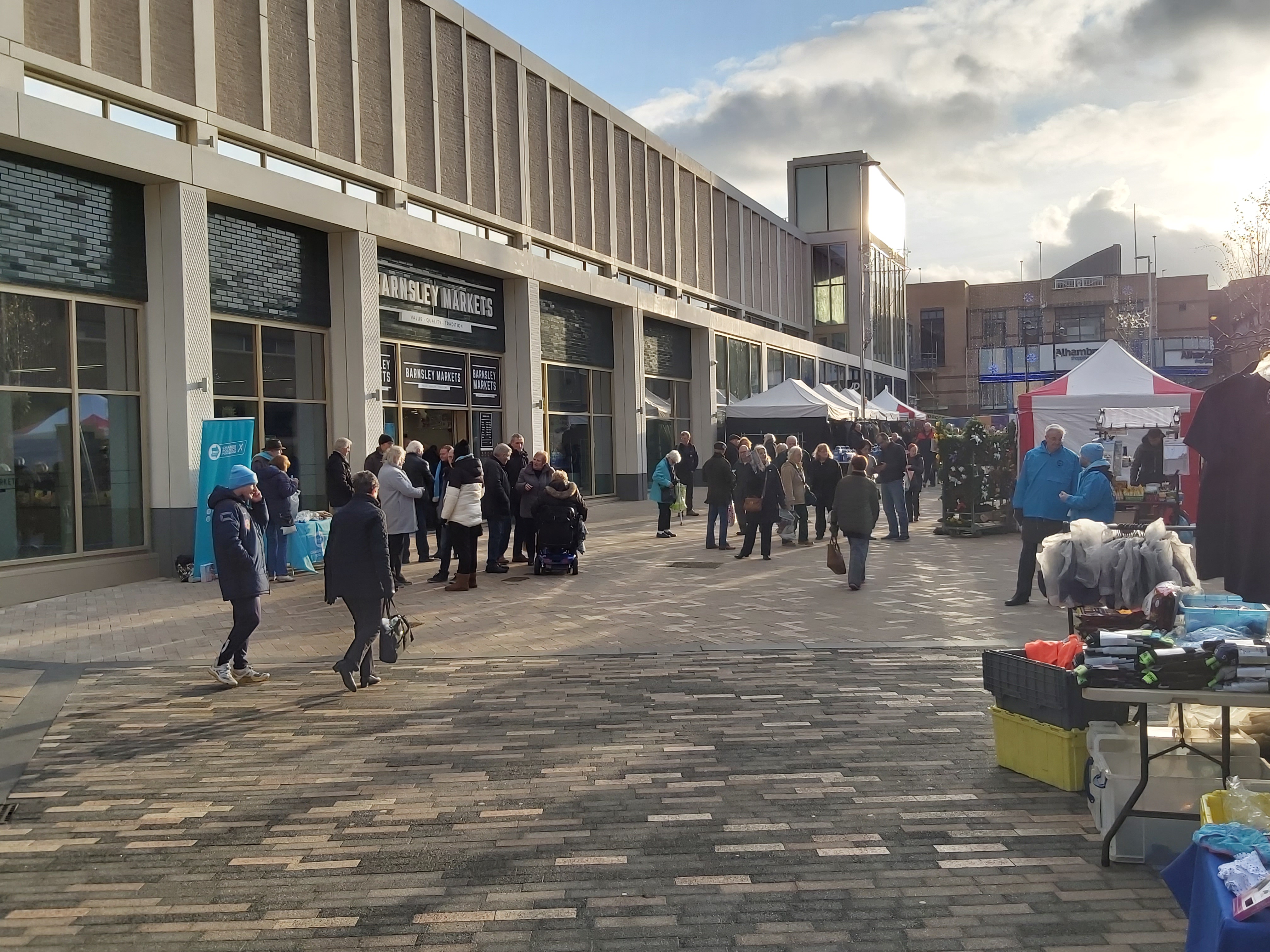
In the closing days of the election campaign, Labour’s anxieties have switched from remain-leaning Liberal Democrat marginals to ordinarily safe seats in the midlands and north, so many of which voted to leave the EU – often overwhelmingly so.
These seats supposedly constitute Labour’s English ‘heartland’, as the cliché goes. It’s an association that isn’t lost on the audience that surrounds me as I try to shrink my frame in the second row of a packed and excitable rally in Barnsley, South Yorkshire, as the crowd awaits the entrance of Nigel Farage.
Having targeted northern seats with rallies and one-to-one surgeries for months now, it is beginning to feel as though Barnsley has become to the Brexit party in 2019 what South Thanet was to Ukip in 2015, with party supporters descending on two of the town’s constituencies from far and wide. Barnsley, a town that lived and breathed the miners’ strike in the 80s – and its ultimate defeat long into the 90s – has been Labour as long as anyone can remember. Now it’s become a test for the party, not least since YouGov’s first MRP* suggested the town represents the Brexit party’s best shot at parliamentary representation, giving Farage the scent of blood.
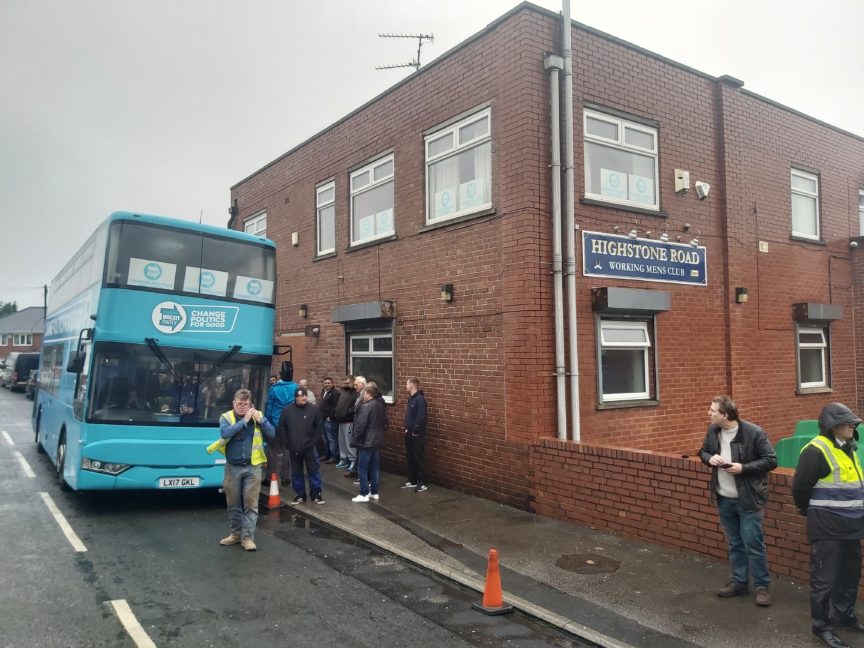
Throughout all the afternoon’s speeches, three clear themes have emerged: 1) none of the speakers, despite being either elected MEPs or parliamentary candidates, are ‘politicians’, 2) each has been motivated by an earnest sense of duty or patriotism, 3) Labour has betrayed its northern leave-voting seats.
“What you’re being told by the Labour party,” Farage opines from the stage, “is if you vote for them, you’re gonna have a second referendum – because you didn’t get it right the first time, you stupid little people. That’s the message, isn’t it?” In Highstone Road WMC, situated in one of Barnsley’s most deprived areas, he doesn’t have to work hard for applause.
I hold my hands up to perhaps having a continually inflated sense of this town’s importance. It is, after all, where I grew up. But in towns like this, perpetually neglected and relatively cut off – at least in spirit – from the large cities surrounding it, I maintain that it matters who gets to represent the people here, not least at a time of widespread disillusionment and documented despair following prolonged and disproportionate cuts.
Hoping for a more balanced sample, I head for a Labour campaign session in Barnsley town centre the following week. “This certainly is a much more keenly contested election than we’ve seen here in Barnsley before,” Dan Jarvis, the sitting Labour MP for Barnsley Central, tells me. Two dozen or so Labour members have gathered outside one of the entrances to Barnsley markets for a leafleting session. The other entrance, a rather more pleasant spot, has already been claimed by the Brexit party by the time we arrive.
It’s immediately clear the campaigners are facing a tough crowd. The Labour faithful certainly do exist – “You’re born Labour and you go out Labour,” one elderly woman tells me – but hostility seems just as widespread. One person shouts at me that Labour should be ashamed for supporting a second referendum. I see another shouting and pointing at Jarvis in the distance, interrupting his conversation to do so. The vast majority of people who stop to talk – hostile to Labour or not – have a depth of political awareness campaigners across the country have come to expect over the past few years. Yet every few attempts to start a conversation someone spies the Labour logo on my leaflet and almost gasps at the audacity of being approached.
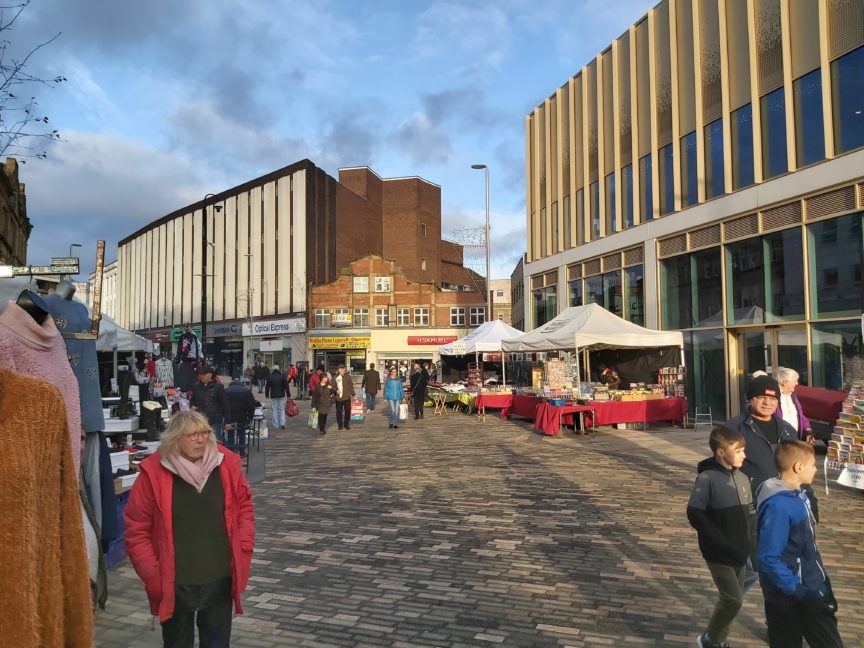
One senses this reception is something Labour is having to deal with across the region, as party activists come to terms with the fact that Brexit has introduced a new axis into British politics. Despite a January withdrawal merely representing the starting gun of sussing out the UK’s trade arrangements outside of the EU, Conservative and Brexit party messaging appears to have done a good job of representing it as the final step in what’s already been a tedious process for the general public. Now, many of those who voted to leave seem willing to swallow just about any pill to get an exit sealed.
On the doorstep in Morley and Outwood, a marginal currently held by the Conservatives, it’s undoubtedly a hurdle. I speak to one man, an octogenarian who participated in the miners’ strike, who says he’s contemplating voting Tory for the first time in order to get Brexit over the finish line. It’s a fraught conversation on my part. I ask him whether he thinks the Conservatives have the north’s best interests at heart given their legacy in the area. He speaks calmly, pointing to the onrush of green policies across parties to suggest that maybe the miners’ days were numbered regardless of what the Conservatives did to them. He hopes Brexit will mean his grandson has more opportunities in life, but admits his grandson is not convinced.
Labour’s candidate here, Deanne Ferguson, decided at the outset of the campaign that she would be taking a much longer view of what she can offer to the constituency she’s hoping to represent. As a trade union organiser, she has a formidable reputation as the powerhouse behind the GMB union’s campaign against exploitative conditions and aggressive surveillance at fashion retailer Asos’s global distribution centre in Barnsley. Most recently, she’s been defending Asda workers who have faced a choice between the imposition of a ‘flexible’ new contract, or receiving the sack before Christmas.
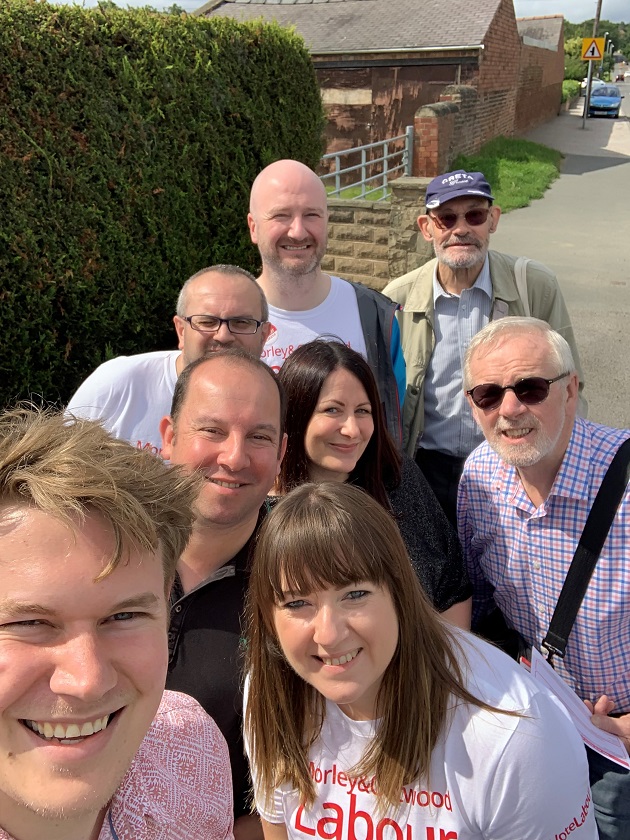
I tell her about my experience with the miner. It’s immediately familiar to her. “I’ve spoken to miners on the door who’ve got generations of family who’ve worked down the pits,” she says. “They’ve seen what happened in Thatcher’s day and they’re considering voting Tory.” She strikes a note of caution, however, warning that the soundbite “I’ve voted Labour all my life, but…” isn’t always supported by the voting behaviour data.
Nonetheless, its repetition is concerning. “My worry is the media is really cutting through to working-class communities like ours,” she tells me. “People have lost faith in politicians, but if we get out and do the community organising – which we’ve been doing really well – and we actually build that trust and confidence up again, I think we can be here for quite a long time to be honest.”
No one could claim Ferguson hasn’t been putting in the leg work. Since securing her candidacy two years ago, she’s been fitting local campaigns in around work while being a lone parent. We meet in the Morley Labour rooms, a building that has the texture of my old school building, impressive at least for the fact that, unlike my old school, it still exists in its historical form.
Ferguson is an unashamedly local candidate. She’s been politically active in the constituency almost half her life, and the disarming lilt of her accent belies the firmness of her words when she talks about the problems facing the area, from school cuts to mental health provision. She’s a strong believer in the principle that constituencies deserve to be represented by someone who knows and understands the area – something Labour hasn’t always prioritised in the past.
“I often think what the party’s done is they’ve parachuted people in who don’t represent the communities,” she says. “I’ve spoken to some local councillors – this is all parties – who’ve been elected, who then write off a particular constituency or a ward because they either go don’t out and vote or they don’t give the responses back that people [think they] should hear. I’m sorry but you’ve got to get your backside out there and you need to listen to the views of absolutely everybody.”
“It might be tough to stand there and take what they’re gonna say to me, but how can I then go and make decisions if I haven’t listened to those views? That’s been my own disillusionment with politics over the years.”
*
Even more than the Tories or the Brexit party, disillusionment appears to be the left’s real enemy across Labour’s ‘heartland’. On the doorstep, one senses that among undecided voters there persists a resignation that things simply cannot improve, whoever gets into power. I ask Francyne Johnson, Labour’s candidate in Penistone and Stocksbridge, whether it’s something she’s encountered too.
“Mmm!” she nods. “Definitely. Massively so.”
Penistone and Stocksbridge straddles the borough of Barnsley in the north and outlying areas of Sheffield in the south, and is perhaps most notable in recent history for being the seat of Angela ‘funny tinge’ Smith, who defected from Labour to the Lib Dems earlier in 2019. Smith is now standing in a Greater Manchester seat.
“It’s one of those seats that’s going to be a barometer,” Johnson says.
A wrong turn during Penistone’s rush hour leads to us conducting our interview in the front seat of a car in a residential cul-de-sac. It feels like a varied afternoon for Johnson, who’s just wrapped up an interview of her own with Irene, a 92-year-old pensioner who has been recounting her memories of the inauguration of the NHS. As she recalls the conversation, it’s clear that Irene’s reflections have had a personal resonance with Johnson, who five years ago was rushed to intensive care with her newborn daughter – both of them surviving thanks to the fast work of NHS staff.
During any election campaign, you could be half-forgiven for thinking Labour sees health as something of an electoral amulet, warding off any number of criticisms with its unarguable claim to having been the party that created the NHS. Yet it’s important to remember the NHS is not only significant because the vast majority of us rely on it, but because of the political vision that precipitated it. It’s a relic of a time when things could – and truly did – get better for working-class people.
It’s the kind of visionary investment Johnson says this area needs, which won’t come at the behest of the Tories. She notes that the Conservatives are wheeling out their Towns Fund as a sort of electoral bribe to help swing key marginals, which “goes nowhere near to addressing the devastation this government has wreaked upon communities like this,” according to Johnson.
“What this community needs is not a £25m ‘bribe’ for a developer to make superficial improvements the High Street – it’s proper investment.”
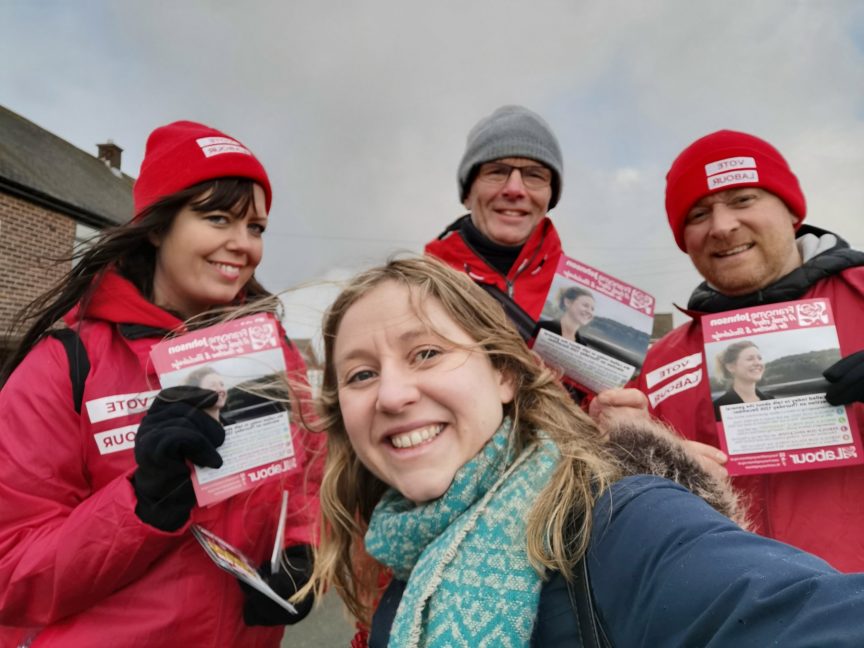
Johnson and her team have been fighting a challenging campaign here, which due to a tumultuous year in both the seat and national politics, hasn’t been able to benefit from the sort of run-up they might have preferred. Nonetheless, when I meet them the team are buoyed by a strong performance at a recent hustings event, if quite frustrated that a communications mix-up led to Johnson’s stump message to voters being left out of the local paper’s profile of candidates.
Meanwhile, the Tories have been campaigning hard, with proper boots on the ground for the first time, Johnson tells me. She is keen to make sure the Tories are forced to own their record, and ultimately blames voters’ disaffection on the party’s decade in power.
“Because we’ve had austerity for so long – we’re talking nearly a decade – it’s become quite an amorphous thing,” she explains. “I think it’s hard for quite a lot of people now to imagine how things could get better because they feel that now everything is just so tough for so many. It’s fostered a sense in which people say they can’t trust in politics.”
It’s an analysis which is shared across the region. “Yorkshire, the north of England, has not had its fair share of government investment over many generations,” says Jarvis.
Even so, Brexit has undoubtedly become something to navigate for anyone standing in this election, with Labour facing a double hurdle in places that on the whole don’t want a ‘route to remain’. In the first instance, candidates need to convince voters that a better Brexit deal is worth the wait. Beyond that, they also need to convince people that risking Brexit altogether in second referendum will be alleviated by the party’s generous offer on public investment. I ask how the proposal has gone down locally.
“I think, erm… It’s been interesting for me, talking to lots of people all over the constituency about it,” says Johnson. “I think people are aware that we need a deal that protects rights and standards and jobs and industry.”
Jarvis is clear that it’s been a tough sell in Barnsley. “I think it’s been difficult for the Labour party in recent times because we represent seats like Barnsley who voted very heavily to leave, but we also represent seats that voted overwhelmingly to remain,” he says. “We’ve found ourselves in a difficult situation in terms of precisely what our message is, given that we’ve got people with a range of different views.”
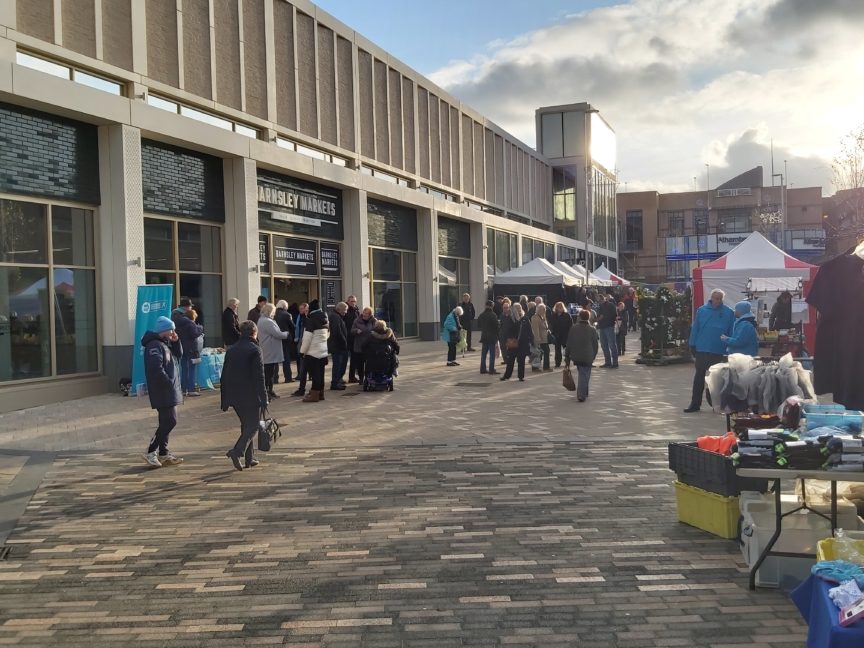
“There is a real disillusionment that Brexit has not been delivered,” he continues. “The referendum that they voted in has not yet happened, and I think there is a view that there are those people down in parliament who never agreed with the referendum result, didn’t accept it, and have found various clever wheezes to prevent Britain from leaving the European Union, and I think that has bred a kind of climate of suspicion and mistrust.”
“People in Barnsley voted overwhelmingly to leave, we haven’t left the European Union as yet, and people are – as we’ve seen this morning in some cases – not happy about that.”
The activists I discuss Brexit with in Barnsley seem to agree that Brexit has prompted a feeling in the air within the town, which they worry will not clear until the UK has left the European Union. What southern commentators often seem to miss is that for many northern leave voters in particular, Brexit now seems to have less to do with the mechanics of leaving the EU – if it ever did – and more to do with the fact that they won a vote and since then some of the more well-connected losers have either maintained that their votes should have been worth more or forgotten that they lost the referendum at all.
It’s a source of frustration, not least because the effects are now being felt on the ground, and some activists in Barnsley worry the wider party isn’t taking the issue seriously. “This is a marginal,” one Labour councillor tells me. “The regional haven’t woken up to it yet.” It’s an alarming statement less than a week before polling day. Internal party polling puts Labour’s Stephanie Peacock 10 points clear of the competition in Barnsley East, I hear. “No chance,” he says. “It’s closer than that.”
*
There is a bigger question to be reckoned with after the election – whatever the result. For its promise of a genuinely grassroots movement, Labour’s campaigns under Jeremy Corbyn – while undoubtedly mammoth compared with previous campaigns – have seldom transcended the logic of triangulation so scorned by the left in the Blair years. Centrally, the party appears to have focused on directing resources to marginals during the campaign period – in fact relying on a severely under-resourced Momentum to do so, at least at the level of people power – while leaving presumed safe seats to figure it out for themselves.
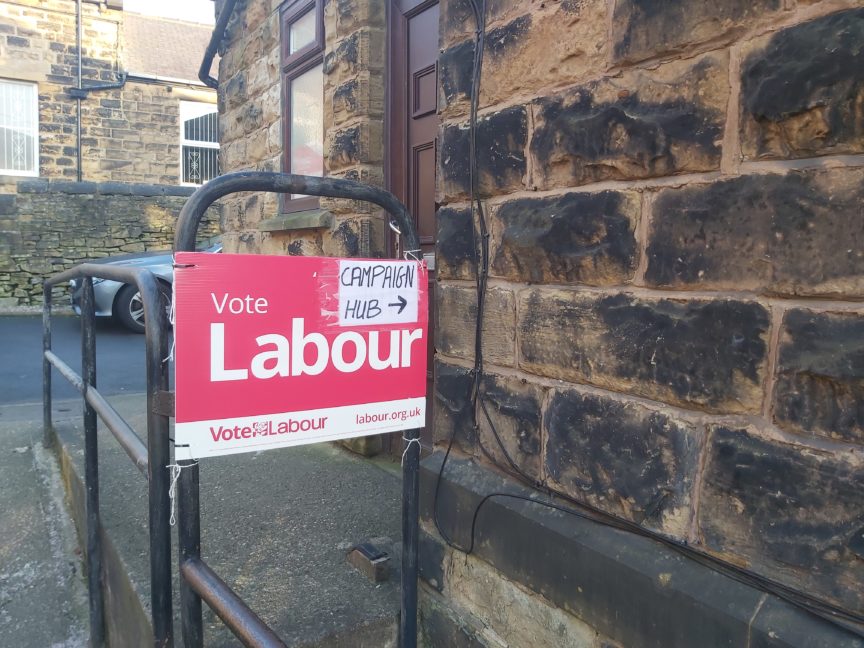
At the level of scarcity management, this makes a sort of sense, of course. But the fact campaigners in a place like Barnsley are now looking rather nervously at the competition suggests that a long-term national strategy of continually counting those seats as ‘banked’ before moving on only harms the local electorate’s trust in the party and does little to support local activists when they actually find themselves embattled.
A party does not become more ‘grassroots’ the more members it has, and while the ability to mobilise thousands of members each election time will always be valuable, it cannot be a substitute for the more patient work of organising. Up and down the Pennines, the scourge of disillusionment has made this election hard for the left, and tackling it properly will require more than just a change of government – although one hopes it will help.
In Morley and Outwood, Deanne Ferguson’s gamble has been to try to shift the conversation away from Brexit negativity by running a positive campaign emphasising her local record. Over the past two years she has campaigned with a clear view to building up trust and confidence within a community that has struggled with both.
Ferguson is adamant that this is the type of work that will be the making of the labour movement yet. “You’ve got to do things for no gain, if that makes sense,” she says. “When you do the work for people for no gain, that’s when you build that trust and confidence up, and the party’s got to start doing that.”
After a time, she says, “people start coming back to you.”
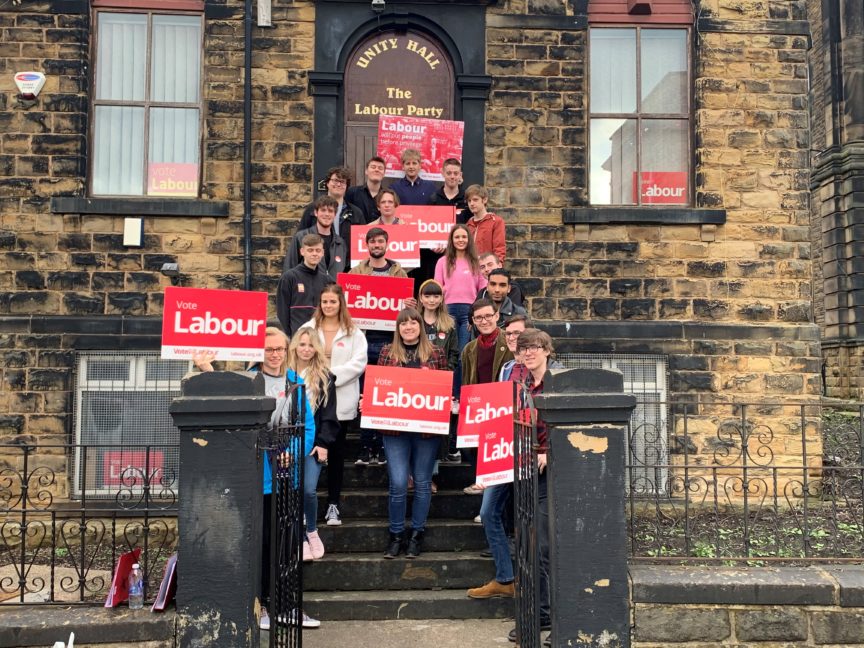
Ferguson is of the view that trust and confidence are not just central to sound electoral politics, but also good class politics. She recalls meeting Waspi women who don’t believe they will ever see pensions justice, despite Labour’s plans to compensate them. She points out that being in opposition for so long has meant three sets of promises have been put to the public which Labour haven’t so far been in a position to implement. But the fact people generally lack trust in politics and don’t believe the world can be better – that’s a class issue.
“It is absolutely about class,” says Ferguson. “It has everything to do with class. And do you know what – we don’t talk about it enough, and we really do need to talk about it.”
“I’m standing for the working class,” she tells me. “Being able to be the voice for care workers and Asos workers and people in the gig economy, local authority workers, manufacturers… that’s incredible. I represent Asda workers and I’ve got an Asda in my constituency, so I know about the [recently imposed] contract 6 and what that’s doing to people.”
For Ferguson, whose start in the labour movement came from working the phones at the GMB and was compounded by demonstrating against the Iraq war, the next step is to ensure more working-class people are supported to represent their own communities, yes as community leaders – but ultimately in politics.
“We’ve got to get more working-class MPs otherwise we’re just gonna have the elite continually making decisions for us, and that just fuels the disengagement and people feeling the way they feel, because why should they bother?” she says.
If it begins with Ferguson, she’s keen that it doesn’t end with her. “It’ll not be getting there and pulling the ladder up – I’ll be hoisting a load of ladders down and getting people up there with me,” she chuckles. “Hopefully.”
*YouGov’s final MRP confirms this story, as well as showing an uptick in Brexit party momentum in Barnsley East.
Craig Gent is Novara Media’s north of England editor and the author of Cyberboss (2024, Verso Books).